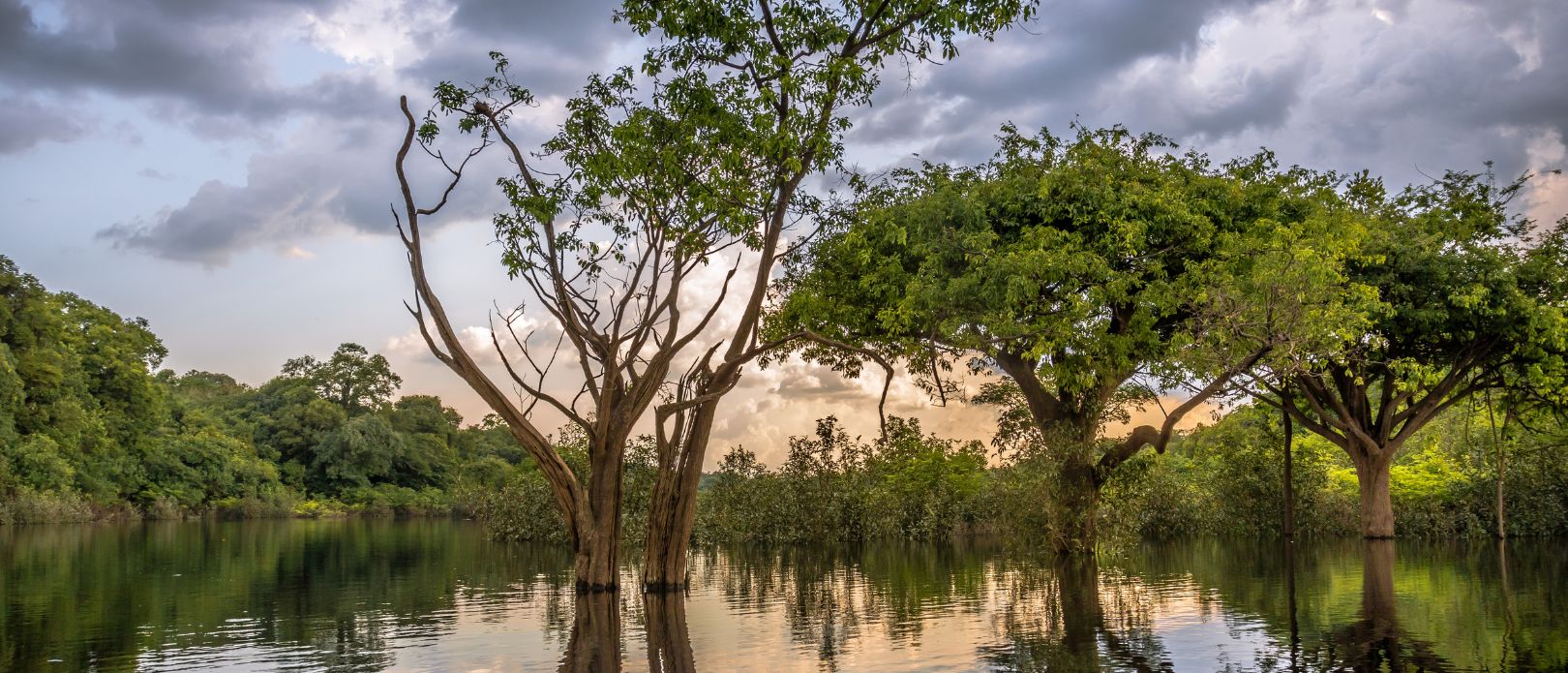environmental award
Johan Rockström awarded the Tyler Prize

Profile photo by M. Axelsson at Azote, background photo by Johannes Ernstberger at Stockholm Resilience Centre.
Johan Rockström, professor and former director at Stockholm Resilience Centre at Stockholm University, now leading the University of Potsdam Institute for Climate Research, has received the world's top environmental prize.
The Tyler Prize for Environmental Achievement is considered to be the world's most prestigious prize for efforts in environmental science, environmental health and energy. The prize is 250,000 US dollars and is sometimes called the "Nobel Prize in the Environment". The 2024 prize is awarded to Johan Rockström, director of the Potsdam Institute for Climate Impact Research in Germany, for his groundbreaking efforts in developing the Planetary Boundaries framework.
Johan Rockström is also a professor of environmental science at Stockholm Resilience Centre, at Stockholm University. Serving as the founding director of the Centre from 2007 to 2018, he has been at the forefront of pioneering research. In 2009 Johan Rockström and colleagues published a seminal study on Planetary Boundaries. It is a framework that identifies the natural systems supporting human life on Earth and the changes that can safely be made within them without seriously altering life on the planet. Stockholm Resilience Centre, under Rockström's leadership, has subsequently contributed significantly to the discourse on planetary boundaries through a series of influential studies.
Well-cited researcher and communicator
Johan Rockström is one of the world's most cited researchers. He is also well known as a communicator and debater on climate and sustainability issues. Johan Rockström is the co-author of several books such as "Breaking Boundaries: The Science of Our Planet", which became a documentary on Netflix with Sir David Attenborough. Several of Johan Rockström's lectures have also been widely spread in social media.
The prize will be awarded on 17 May at a ceremony in Potsdam.
Planetary boundaries
Planetary boundaries integrate nine systems that determine the function and state of the planet. They enable human life and include systems such as clean water, a stable climate and biodiversity. This framework has helped shape public responses to climate change and sustainable development, including the UN's Sustainable Development Goals. Humanity is "well outside the safe operating space" on six of the nine planetary boundaries, according to the latest update on the planetary boundaries, published September 2023 in Science Advances.








